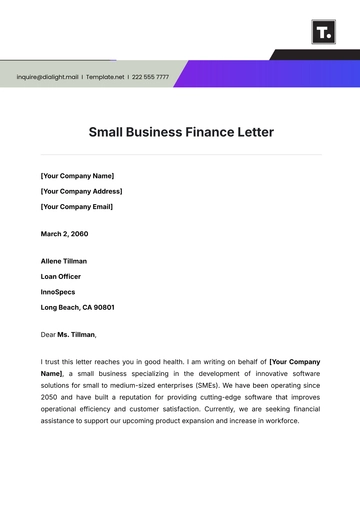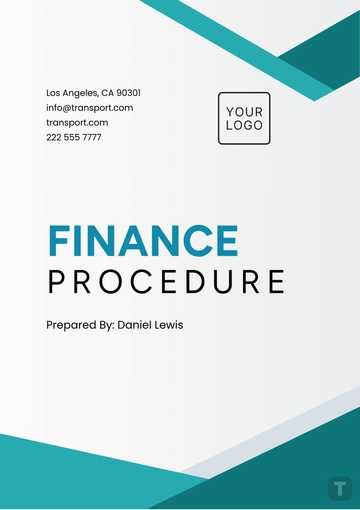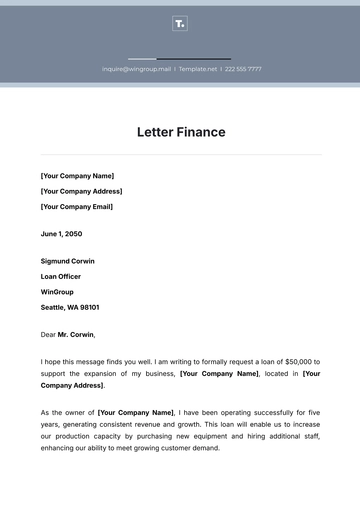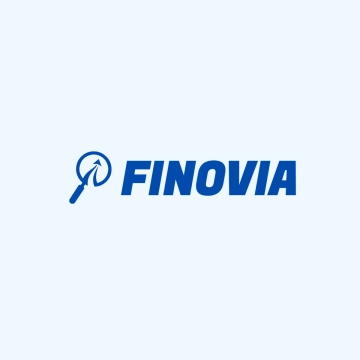Free Complete Guide to Advertising Financial Compliance
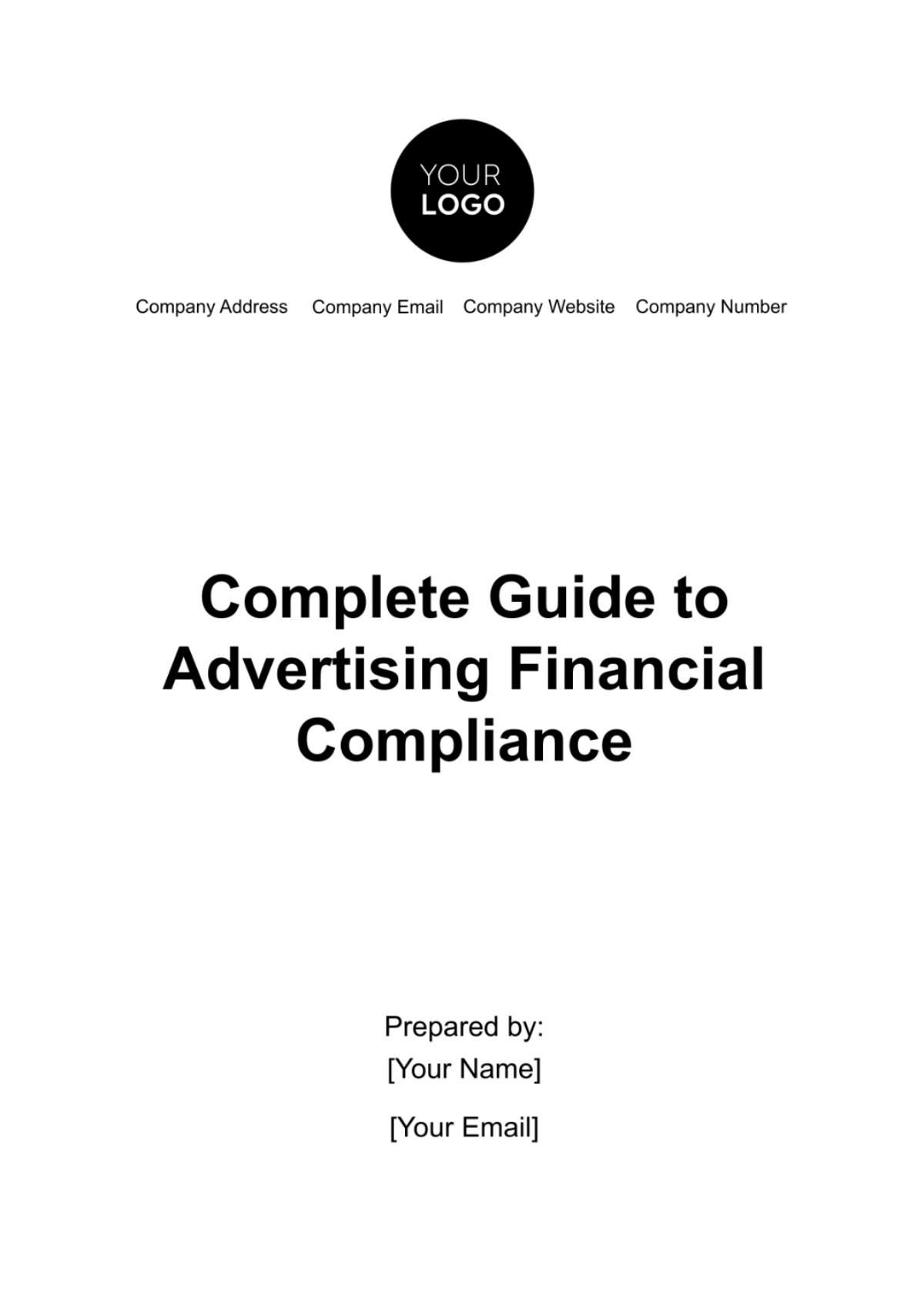
I. Introduction
This guide serves as a comprehensive resource for ensuring financial compliance within the advertising activities of [Your Company Name]. In an industry where fiscal responsibility and adherence to regulatory standards are paramount, this document outlines the key principles, practices, and procedures to maintain financial compliance, thus safeguarding the company's reputation and legal standing.
II. Understanding Advertising Financial Compliance
In the dynamic and often complex world of advertising, financial compliance is not just a legal necessity but a cornerstone of ethical business practice. For [Your Company Name], understanding and adhering to the multifaceted aspects of advertising financial compliance is paramount. This encompasses a comprehensive adherence to various laws, regulations, and ethical standards that govern the financial aspects of advertising activities.
Financial compliance in advertising extends beyond the basic principles of honest accounting and transparent financial reporting. It involves a meticulous approach to managing and reporting expenses related to advertising. This includes ensuring accuracy in the recording of expenditures such as media purchases, production costs, agency fees, and other related expenses. The objective is not only to maintain clear and truthful financial records but also to ensure that these expenses align with the allocated budgets and do not exceed them.
Additionally, compliance with tax laws forms a critical part of financial compliance in advertising. It’s imperative that [Your Company Name] accurately reports its advertising expenses, as these are often subject to various tax implications. Understanding which expenses are tax-deductible and which are not is crucial to avoid any legal complications. This requires staying abreast of the latest tax codes and regulations that can impact advertising practices.
Moreover, the advertising industry is regulated by specific financial regulations, often varying from one jurisdiction to another. These regulations can include guidelines set forth by bodies like the Federal Trade Commission (FTC) in the United States, which impose strict rules on truth in advertising, prohibiting misleading or false advertising claims. Complying with these regulations is not just a legal mandate but also vital to maintaining the trust and confidence of consumers and partners.
To navigate these complex waters, [Your Company Name] must foster a culture of compliance that permeates all levels of its advertising operations. This includes regular training for staff, conducting audits, and establishing internal controls and procedures to ensure ongoing compliance with all relevant laws and ethical standards. Understanding and adhering to these principles not only safeguards the company from legal repercussions but also fortifies its reputation as a trustworthy and responsible entity in the advertising world.
III. Compliance with Advertising Laws and Regulations
In the advertising industry, compliance with laws and regulations is not just a legal obligation but a cornerstone of ethical business practice. At [Your Company Name], we place a high priority on adhering to these laws to maintain our integrity and reputation in the market. This chapter provides an overview of the key laws and regulations and outlines our strategies for compliance.
A. Key Laws and Regulations
Truth in Advertising Laws: These laws are fundamental in ensuring that all advertising is truthful, not deceptive, and backed by evidence when necessary. Truth in advertising is not just a legal standard but a moral imperative, ensuring that the public can trust the advertisements they see and hear.
Federal Trade Commission (FTC) Regulations: The FTC enforces rules that protect consumers from unfair or deceptive practices. Their regulations cover a wide range of practices in advertising, including online advertising, endorsements, and marketing to children. It is imperative that our advertising campaigns comply with these regulations to avoid penalties and preserve consumer trust.
State and Local Advertising Laws: In addition to federal regulations, advertising is also subject to state and local laws. These may include specific disclosure requirements, regulations on certain types of products, or consumer protection laws. It's important for our campaigns to be tailored to comply with the specific laws of each locality where our ads are displayed.
B. Compliance Strategies
Regular Training Sessions for Staff: To ensure compliance, we conduct regular training sessions for our staff. These sessions cover the latest developments in advertising laws and regulations, ethical advertising practices, and company policies related to advertising compliance. By keeping our team informed and educated, we reduce the risk of inadvertent non-compliance.
Frequent Audits and Reviews of Advertising Content: We have implemented a robust system of audits and reviews to monitor our advertising content. This includes pre-launch reviews to catch any potential issues before they go live, as well as ongoing audits of active campaigns. These practices help ensure that our advertising content remains compliant with all applicable laws and regulations at all times.
By adhering to these key laws and regulations and implementing strict compliance strategies, [Your Company Name] demonstrates its commitment to responsible and ethical advertising. This not only helps us avoid legal pitfalls but also enhances our reputation and builds trust with our customers and the public.
IV. Financial Reporting and Management
In the dynamic world of advertising, maintaining accurate financial reporting and effective budget management is crucial for [Your Company Name]. This ensures not only compliance with financial regulations but also the strategic allocation of resources to maximize the impact of our advertising campaigns. This chapter outlines the key aspects of accurate expense reporting and effective budget management.
A. Accurate Expense Reporting
Importance of Precision: Accurate recording of all advertising expenses is vital for ensuring financial transparency and compliance. This includes detailed tracking of costs associated with media buying, production, and distribution.
Scope of Expense Reporting: Our expense reporting covers various cost categories related to advertising, providing a clear picture of where and how the budget is being spent.
Expense Reporting Chart
The following chart and table showcase the estimated costs per category:
Category | Details | Costs |
Media Buying | Costs for purchasing ad space on various platforms | $1,200,000 |
Production | Expenses for creating ad materials | $800,000 |
Distribution | Costs related to the distribution of ads | $600,000 |
Total | $2,600,000 |
B. Budget Management
Aligning Spending with Budgets: Effective budget management is essential to ensure that advertising spending aligns with allocated funds. This involves strategic planning and ongoing monitoring of expenses.
Regular Budget Reviews: Regular reviews of the advertising budget are conducted to identify and address any discrepancies. This ensures that our spending remains within the allocated budget and aligns with our strategic goals.
2.1. Identifying Discrepancies: Regular monitoring helps in early detection of any variances between planned and actual expenditures.
2.2. Adjusting Strategies: Budget reviews enable timely adjustments in advertising strategies to optimize spending.
2.3. Forecasting: Analysis of past spending patterns aids in more accurate budget forecasting for future periods.
Through rigorous expense reporting and budget management, [Your Company Name] ensures that every dollar spent on advertising is an investment towards achieving our business objectives. This disciplined approach not only maintains financial health but also contributes to the overall effectiveness and success of our advertising strategies.
V. Tax Compliance in Advertising
Navigating the intricacies of tax compliance in the realm of advertising is a critical aspect for [Your Company Name]. It involves a comprehensive understanding of what constitutes taxable advertising expenditures and meticulous adherence to tax reporting procedures. This chapter aims to demystify these aspects, ensuring that our company remains compliant while optimizing our financial obligations.
A. Understanding Taxable Advertising Expenditures
Tax-Deductible Nature of Advertising Expenses: Generally, advertising expenses are considered tax-deductible as they are deemed necessary for the conduct of business. This includes costs related to media buys, production of advertising materials, and other promotional activities. However, it's important to note that not all advertising expenditures are automatically tax-deductible.
Exceptions to Consider: Certain exceptions must be kept in mind. For instance, expenses on advertisements that are political in nature or those that are capital expenditures may not qualify as tax-deductible. Understanding these nuances is crucial to correctly categorizing and claiming expenses.
B. Tax Reporting Procedures
Documenting Advertising-Related Expenses: Accurate tax reporting in advertising begins with the meticulous documentation of all related expenses. This involves keeping detailed records of all transactions, contracts, and invoices related to advertising activities. The aim is to create a transparent trail that can be easily audited and reviewed.
Distinguishing Taxable and Non-Taxable Costs: Not all advertising costs are treated equally under tax laws. The nuances of taxable and non-taxable advertising costs must be clearly understood. For example, expenses that directly generate income are often taxable, whereas promotional costs might be fully deductible.
Regular Updates on Tax Laws: Staying updated with the latest tax laws and regulations is vital. Tax codes can evolve, impacting how advertising costs are treated. Regular consultations with tax professionals and attending relevant seminars or workshops can be invaluable in keeping our tax reporting procedures up-to-date and compliant.
In conclusion, ensuring tax compliance in advertising is a multifaceted task that requires both a deep understanding of tax laws and meticulous record-keeping. At [Your Company Name], we take this responsibility seriously as it not only helps us in fulfilling our legal obligations but also assists in efficient financial planning and management. By diligently adhering to these practices, we safeguard our company against potential legal complications and optimize our financial health.
VI. Ethical Considerations in Advertising Finance
In the advertising industry, where financial transactions are manifold and complex, maintaining ethical integrity is not just a choice but a necessity for [Your Company Name]. Ethical considerations in advertising finance go beyond legal compliance, addressing the moral aspects of financial dealings. This chapter focuses on the crucial aspects of ensuring transparency and preventing fraudulent practices.
A. Ensuring Transparency
Non-Negotiable Transparency: Transparency in advertising finance is a cornerstone of our ethical commitment. It involves being open and clear about all financial transactions, particularly those related to advertising. This transparency is vital in building and maintaining trust among stakeholders, including clients, partners, and the public.
Disclosure of Paid Partnerships and Sponsorships: A significant area where transparency is crucial is in the disclosure of paid partnerships and sponsorships. Any financial exchange or incentive in return for advertising or promotional activities must be openly declared. This includes clear labeling of sponsored content to ensure audiences are aware of any commercial relationships influencing the advertising content.
B. Preventing Fraudulent Practices
Vigilance Against Fraud: The advertising sector, with its vast financial flows, can be susceptible to fraudulent practices. At [Your Company Name], vigilance against such practices is a top priority. Implementing strict financial controls and continuously educating staff on the signs of fraud are essential steps in safeguarding our operations.
Regular Audits and Ethical Code: Conducting regular financial audits is a key measure in detecting and preventing fraud. These audits, whether internal or conducted by external parties, help in scrutinizing financial records for any irregularities. Alongside this, a strong ethical code that outlines the standards of financial conduct expected from all employees reinforces a culture of honesty and integrity. This ethical code serves as a guide in daily operations and decision-making processes, ensuring that every action aligns with our company’s core values.
In summary, ethical considerations in advertising finance are integral to the operations of [Your Company Name]. By prioritizing transparency and taking proactive measures against fraudulent practices, we not only adhere to ethical standards but also reinforce our commitment to responsible business practices. These efforts are vital in upholding our reputation, building trust with our audience, and ensuring the long-term success of our business.
VII. Implementing a Financial Compliance Program
For [Your Company Name], implementing a robust Financial Compliance Program is crucial to ensure that our advertising finances are managed in accordance with legal requirements and ethical standards. This program is designed to foster a culture of compliance and integrity across all levels of the organization. This chapter delineates the key steps for implementation, as well as the monitoring and evaluation processes essential for maintaining the program's effectiveness.
A. Steps to Implementation
Establishing a Dedicated Compliance Team: The first step involves setting up a specialized team responsible for overseeing the compliance program. This team, composed of individuals with expertise in finance, law, and advertising, is tasked with ensuring that all financial activities adhere to legal and ethical standards. They serve as the central point for compliance-related issues, providing guidance and support to other departments.
Developing a Comprehensive Compliance Manual: A critical component of the program is a comprehensive compliance manual. This manual outlines the policies, procedures, and best practices for financial management in advertising. It serves as a reference guide for all employees, ensuring that there's a clear understanding of the company's compliance requirements.
Regular Training and Updates for All Employees: Ongoing education is key to the success of the compliance program. Regular training sessions for employees ensure they are updated on the latest compliance standards, legal changes, and ethical practices. These sessions also reinforce the importance of compliance in day-to-day operations and decision-making.
B. Monitoring and Evaluation
Continuous Monitoring: Continuous monitoring of financial transactions and practices is essential to detect and address compliance issues promptly. This involves regular audits, both internal and external, and continuous oversight by the compliance team.
Periodic Evaluations: Periodic evaluations of the compliance program are conducted to assess its effectiveness. These evaluations help identify areas for improvement and ensure that the program evolves in line with changes in laws, regulations, and industry standards.
Feedback and Improvement: Feedback from employees, audits, and evaluations is used to refine and enhance the compliance program. This iterative process ensures that the program remains effective, relevant, and aligned with the company’s goals and values.
Implementing and maintaining a Financial Compliance Program is a dynamic and ongoing process. For [Your Company Name], it is an integral part of our commitment to ethical business practices and financial integrity. By adhering to these steps and continuously striving for improvement, we ensure that our company not only meets compliance standards but also sets a benchmark for excellence in the advertising industry.
VIII. Conclusion
Adhering to financial compliance in advertising is a multifaceted challenge that requires diligence, knowledge, and proactive measures. This guide provides a foundational framework for [Your Company Name] to navigate the complex landscape of advertising finance, ensuring ethical practices, legal compliance, and financial integrity. By following these guidelines, our company commits to upholding the highest standards in all advertising financial activities.
- 100% Customizable, free editor
- Access 1 Million+ Templates, photo’s & graphics
- Download or share as a template
- Click and replace photos, graphics, text, backgrounds
- Resize, crop, AI write & more
- Access advanced editor
Ensure your advertising finances are compliant while saving time with our Complete Guide to Advertising Financial Compliance Template! This customizable guide from Template.net is editable, enabling you to easily create a detailed guide that helps your team understand financial compliance. Our AI Editor Tool simplifies the editing process! Access today!






